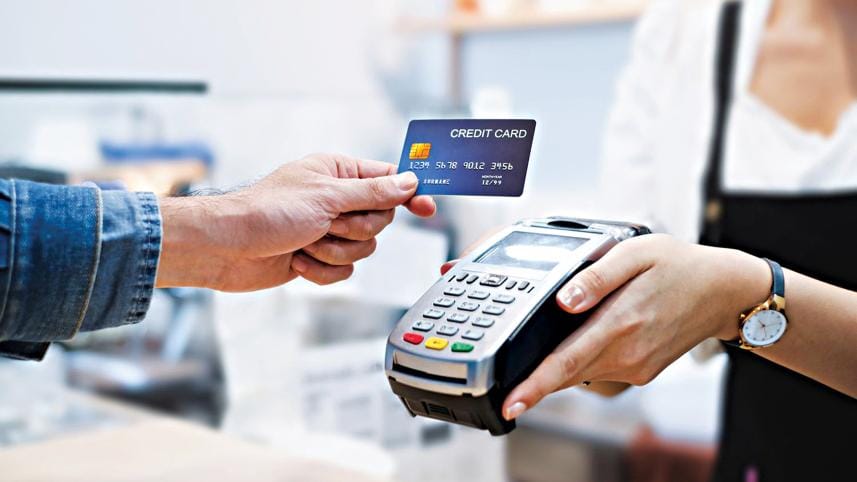Contactless payments doubled in 2024

Contactless payments, or tap-to-pay transactions, more than doubled to 13 percent of all transactions in Bangladesh in 2024 through Visa, a leading global digital payments provider, according to a new report.
The Visa Trends Report revealed that domestic contactless payments alone have tripled, driven by increased usage of both credit and debit contactless cards.
In its comparison of trends from 2023 to 2024, the global payments provider's findings indicate a significant shift towards digital payments, with notable growth in online and contactless transactions, both domestically and across borders.
Compared to 2023, Visa recorded a 14 percent increase in overall spending and a 17 percent rise in transactions in 2024. Both credit and debit card usage saw substantial growth, with online payments the key driver. While in-store payments increased, online transactions remained the primary catalyst for growth, per the report.
Domestic spending was largely driven by e-commerce transactions.
Meanwhile, international transactions saw strong growth in both in-store payments and online purchases.
"Our latest analysis highlights Bangladesh's rapid shift towards digital and contactless payments across all segments – credit and debit cards, online and in-store transactions, and both domestic and international usage," said Sabbir Ahmed, country manager for Bangladesh, Nepal, and Bhutan at Visa.
"Backed by the expertise of our Visa Consulting and Analytics team, we are committed to providing secure digital payments to consumers, businesses, and clients across Bangladesh," he added.
The analysis also highlighted increased digital adoption by businesses, with a 50 percent rise in card-based spending. In particular, business credit cards experienced a surge of over 135 percent in both spending and the number of transactions.
Nearly half of domestic spending came from digital wallet loads. Other major domestic spending categories included travel services, pharmacies, and healthcare.
However, cross-border payments were primarily driven by education, business-to-business (B2B) transactions, food and grocery purchases, and government services.
A deeper analysis by Visa revealed that over 90 percent of cross-border spending by Bangladeshis was concentrated in 20 countries.
The top five destinations -- India, the US, the UK, Thailand, and the United Arab Emirates -- accounted for more than half of the total.
The top five countries where Bangladeshis spent the most in-store last year were India, Thailand, the US, the United Arab Emirates, and Singapore.
While India remained the leading destination for cross-border spending, it saw a 10 percent decline compared to the past year. Thailand, ranked second, witnessed a more than 20 percent increase in spending, driven primarily by medical tourism.
Bangladeshis spent nearly 25 percent more on healthcare and over 35 percent more at pharmacies in Thailand. Other notable cross-border spending markets included Malaysia, Mainland China, and Vietnam.
Within Bangladesh, Dhaka remained the dominant hub for digital transactions, accounting for 75 percent of total spending and 80 percent of transactions in 2024.
The city also saw a 20 percent increase in spending, with 60 percent of consumers preferring online payments. Other cities witnessing growth in digital payments included Gazipur, Rajshahi, Rangpur, and Mymensingh.



 For all latest news, follow The Daily Star's Google News channel.
For all latest news, follow The Daily Star's Google News channel.
Comments